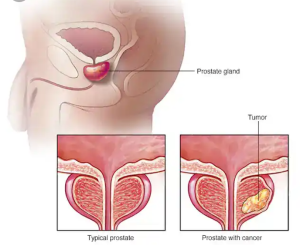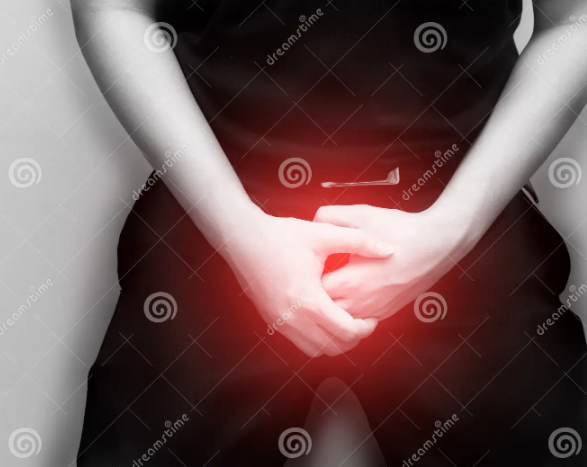Prostate cancer is a type of cancer that develops in the prostate gland, which is a small walnut-shaped gland found in men. The prostate gland is located below the bladder and surrounds the urethra, the tube that carries urine and semen out of the body.

Prostate cancer usually begins when the cells in the prostate gland start growing uncontrollably. Over time, these cancerous cells can form a tumor, which can spread to nearby tissues and, in advanced cases, to other parts of the body.
Prostate cancer is one of the most common types of cancer among men, but it often progresses slowly and may not cause symptoms in the early stages. However, as the cancer advances, it can lead to noticeable symptoms such as difficulty urinating, blood in the urine or semen, erectile dysfunction, bone pain, and unexplained weight loss.
While the exact causes of prostate cancer are unknown, there are certain risk factors that may increase a man’s likelihood of developing the disease. These include age (most cases occur in men over 50), family history of prostate cancer, certain genetic changes, and race (African-American men have a higher risk).
It’s important for men, especially those at higher risk, to undergo regular prostate screenings, including a prostate-specific antigen (PSA) blood test and a digital rectal exam (DRE). Early detection through screening can lead to more effective treatment options and better outcomes. If you have concerns about prostate cancer, it is recommended to consult with a healthcare professional for further evaluation and guidance.
Dear Reader, Prostate disorders, including prostate cancer, can often present with various symptoms that should never be ignored. Here are 13 symptoms that warrant attention and should prompt you to seek medical advice:
1. Frequent urination, especially during the night.
2. Difficulty starting or stopping urination.
3. Weak urine flow or dribbling after urination.
4. Pain or discomfort during urination.
5. Blood in the urine or semen.
6. Erectile dysfunction.
7. Recurrent urinary tract infections.
8. Pain or stiffness in the lower back, hips, or pelvic area.
9. Unexplained weight loss or fatigue.
10. Trouble controlling bladder or bowel movements.
11. Swelling or pain in the legs.
12. Loss of appetite or changes in bowel habits.
13. Bone pain, especially in the spine, hips, or ribs.

If you experience any of these symptoms, it is crucial to consult with a healthcare professional promptly. Early detection and intervention significantly improve the chances of successful treatment.



I’ve not experienced any of the above mentioned symptoms.😃
That’s good to know. Keep being awesome sir and watch your health.